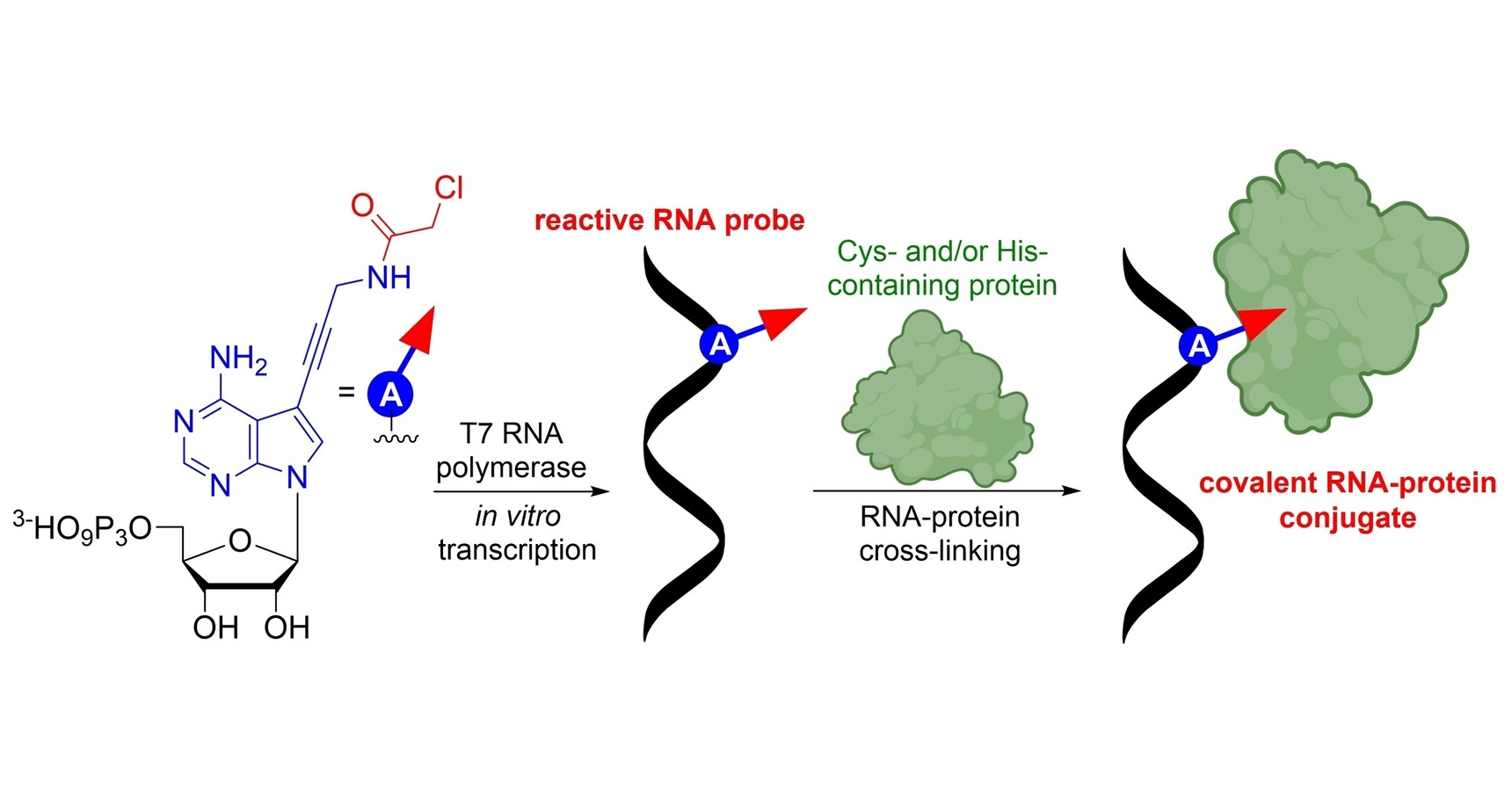
Scientists led by Michal Hocek from IOCB Prague and Faculty of Science, Charles University designed and developed reactive RNA probes for studying and identifying RNA-binding proteins. To that end, the researchers synthesized 7-deaza-ATP bearing a highly reactive chloroacetamide group.
This modified nucleotide can be incorporated into RNA strain by classical in vitro transcription using bacteriophage T7 RNA polymerase. Such an RNA probe can bear one or several reactive modifications at specific positions enabling covalent cross-linking with thiol-containing molecules or with cysteine- or histidine-containing peptides.
The RNA probes reacted selectively with RNA-binding proteins under physiological conditions to form cross-linked conjugates in high conversions thanks to the proximity effect. RNA-protein cross-linked conjugates were successfully characterized by intact mass analysis and proteomic nano-LC–MS/MS.
This novel and gentle cross-linking method excludes the need for external reagents or activation by UV light, thus overcoming UV-related damage and toxicity issues.
The modified RNA probes are promising tools for applications in RNA (bio)conjugations or RNA proteomics.
Read the article: Brunderová, M.; Krömer, M.; Vlková, M.; Hocek M. Chloroacetamide-Modified Nucleotide and RNA for Bioconjugations and Cross-Linking with RNA-Binding Proteins. Angew. Chem. Int. Ed. 2023, e202213764. https://doi.org/10.1002/anie.202213764






